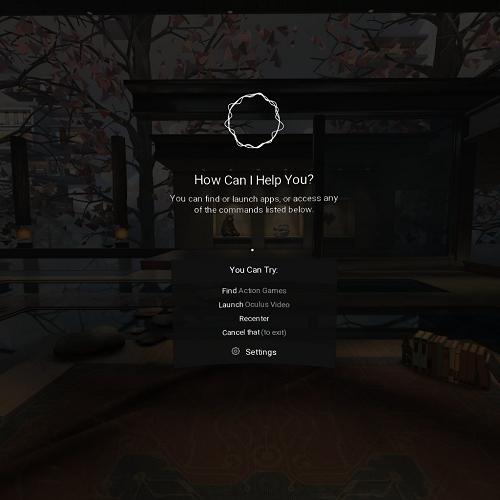SOCIAL
Oculus Adds New ‘Hey Facebook’ Wake Prompt for Voice Commands

Will ‘Hey Facebook’ become the next ‘Siri’ or ‘Alexa’?
Voice commands are becoming increasingly common, as more people buy up smart speaker devices, and enable voice activation in different ways. And now, Facebook’s adding a new way to activate its Oculus VR devices, by using ‘Hey Facebook’ as the wake prompt.

As explained by Oculus:
“Starting this week, we’ll begin rolling out “Hey Facebook” to people using Quest 2. This will be a gradual rollout, but you can find and enable the wake word via our Experimental Features settings – and then say “Hey Facebook, take a screenshot,” “Hey Facebook, show me who’s online,” “Hey Facebook, open Supernatural,” or any of our other voice commands to get started. Note that Quest doesn’t listen for the “Hey Facebook” wake word when the microphone is turned off, or when the headset is asleep or powered down.”
So the device is definitely not listening to your everyday conversations, as goes the common Facebook advertising myth.
Oculus first added voice commands last year, but in its initial iteration, it still required users to press a button to activate the option. The new ‘Hey Facebook’ activation is designed to make it easier to take action without leaving the immersion of the VR environment – which makes a lot of sense, but still, it will also, no doubt, lead to some increased concerns.
In this sense, it’s interesting that Facebook has gone with ‘Hey Facebook’ on Oculus, instead of ‘Hey Oculus’, as the VR headset is not a Facebook-branded device. As we saw recently, with the backlash over WhatsApp potentially sharing more user data with Facebook, there’s clearly a lingering level of concern around Facebook’s data-gathering and utilization processes, and by underlining the Oculus linkage to Facebook, that could serve as a reminder of such, and stoke concerns.
But then again, Facebook wants to own the VR space, and it’s looking to keep Facebook as a key part of it, through the next stage of social media interaction within the virtual environment. As such, by using ‘Hey Facebook’, it also serves as a branding exercise, which could help to strengthen the linkage between the two worlds.
Interestingly, however, Facebook didn’t go with ‘Hey Facebook’ for its Portal smart speaker device.
On Portal, users can activate voice commands by saying ‘Hey Portal’, which avoids the potential association with the company. Which makes sense, given the initial concerns people had around adding a Facebook-owned recording device into their homes.

So it is interesting in this context to see Facebook going with ‘Hey Facebook’ on Oculus. I would assume that, eventually, this will become the main command on all of its voice-activated devices.
Given the various criticisms leveled at the company, it seems logical that Facebook would be at least somewhat hesitant to include the company name within its voice commands, but it could eventually become as common as ‘Siri’ or ‘Alexa’, and further embed Facebook within our lives. Starting with Oculus might be a first step, which could eventually normalize the command, and help build that mental association to bridge the online and virtual worlds.
It may seem like a small addition, and a small consideration in the broader scheme. But given the amount of times that people will use such commands, it is important, and it will play a role in bridging the connection between the platform and the real world.
Oculus notes that “Hey Facebook” is an opt-in experience, which will be rolled out gradually to Quest 2, and later, to all Quest devices.
